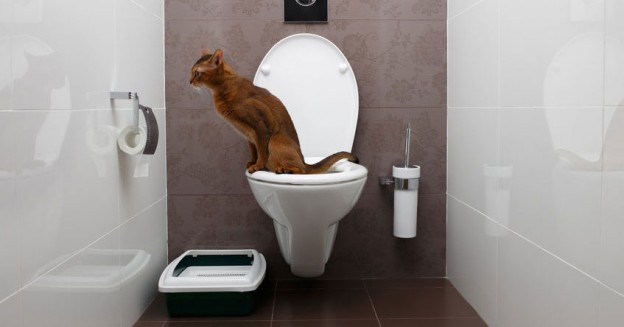Reasons Flushing Cat Poop Down Your Toilet May Cause Problems - Recommendations for Proper Handling
Reasons Flushing Cat Poop Down Your Toilet May Cause Problems - Recommendations for Proper Handling
Blog Article
Are you currently on the lookout for guidance concerning How to Dispose of Cat Poop and Litter Without Plastic Bags?

Intro
As cat proprietors, it's important to be mindful of just how we throw away our feline buddies' waste. While it might seem convenient to purge cat poop down the bathroom, this technique can have harmful repercussions for both the environment and human health and wellness.
Ecological Impact
Purging cat poop introduces unsafe pathogens and parasites into the water system, posturing a considerable risk to water ecosystems. These impurities can adversely influence aquatic life and concession water top quality.
Health Risks
In addition to environmental issues, flushing feline waste can additionally present health and wellness dangers to humans. Feline feces may contain Toxoplasma gondii, a bloodsucker that can trigger toxoplasmosis-- a possibly severe ailment, especially for expectant females and people with damaged body immune systems.
Alternatives to Flushing
Fortunately, there are safer and a lot more liable ways to get rid of pet cat poop. Think about the following options:
1. Scoop and Dispose in Trash
One of the most common technique of dealing with feline poop is to scoop it right into a biodegradable bag and throw it in the garbage. Make certain to use a devoted trash inside story and dispose of the waste promptly.
2. Use Biodegradable Litter
Choose naturally degradable feline clutter made from materials such as corn or wheat. These trashes are eco-friendly and can be safely taken care of in the garbage.
3. Bury in the Yard
If you have a yard, take into consideration hiding feline waste in a designated location away from vegetable yards and water sources. Make certain to dig deep sufficient to prevent contamination of groundwater.
4. Mount a Pet Waste Disposal System
Purchase a pet garbage disposal system specifically created for cat waste. These systems utilize enzymes to break down the waste, reducing odor and ecological impact.
Final thought
Responsible animal possession expands beyond supplying food and sanctuary-- it also involves appropriate waste monitoring. By avoiding flushing cat poop down the bathroom and selecting different disposal approaches, we can decrease our ecological impact and protect human health.
Why You Should Never Flush Cat Poop Down the Toilet
A rose by any other name might smell as sweet, but not all poop is created equal. Toilets, and our sewage systems, are designed for human excrement, not animal waste. It might seem like it couldn’t hurt to toss cat feces into the loo, but it’s not a good idea to flush cat poop in the toilet.
First and foremost, assuming your cat uses a litter box, any waste is going to have litter on it. And even the smallest amount of litter can wreak havoc on plumbing.
Over time, small amounts build up, filling up your septic system. Most litter sold today is clumping; it is made from a type of clay that hardens when it gets wet. Ever tried to scrape old clumps from the bottom of a litter box? You know just how cement-hard it can get!
Now imagine just a small clump of that stuck in your pipes. A simple de-clogger like Drano isn’t going to cut it. And that means it’s going to cost you big time to fix it.
Parasitic Contamination
Believe it or not, your healthy kitty may be harboring a nasty parasite. Only cats excrete Toxoplasma in their feces. Yet it rarely causes serious health issues in the cats that are infected. Most people will be fine too if infected. Only pregnant women and people with compromised immune systems are at risk. (If you’ve ever heard how women who are expecting are excused from litter cleaning duty, Toxoplasma is why.)
But other animals may have a problem if infected with the parasite. And human water treatment systems aren’t designed to handle it. As a result, the systems don’t remove the parasite before discharging wastewater into local waterways. Fish, shellfish, and other marine life — otters in particular — are susceptible to toxoplasma. If exposed, most will end up with brain damage and many will die.
Depending on the species of fish, they may end up on someone’s fish hook and, ultimately on someone’s dinner plate. If that someone has a chronic illness, they’re at risk.
Skip the Toilet Training
We know there are folks out there who like to toilet train their cats. And we give them props, it takes a lot of work. But thanks to the toxoplasma, it’s not a good idea.

As a serious person who reads about How to Dispose of Cat Poop and Litter Without Plastic Bags, I think sharing that article was a great idea. You should take the opportunity to share this post if you enjoyed it. Thanks a bunch for your time. Please come visit our website back soon.
Book 24/7 Report this page